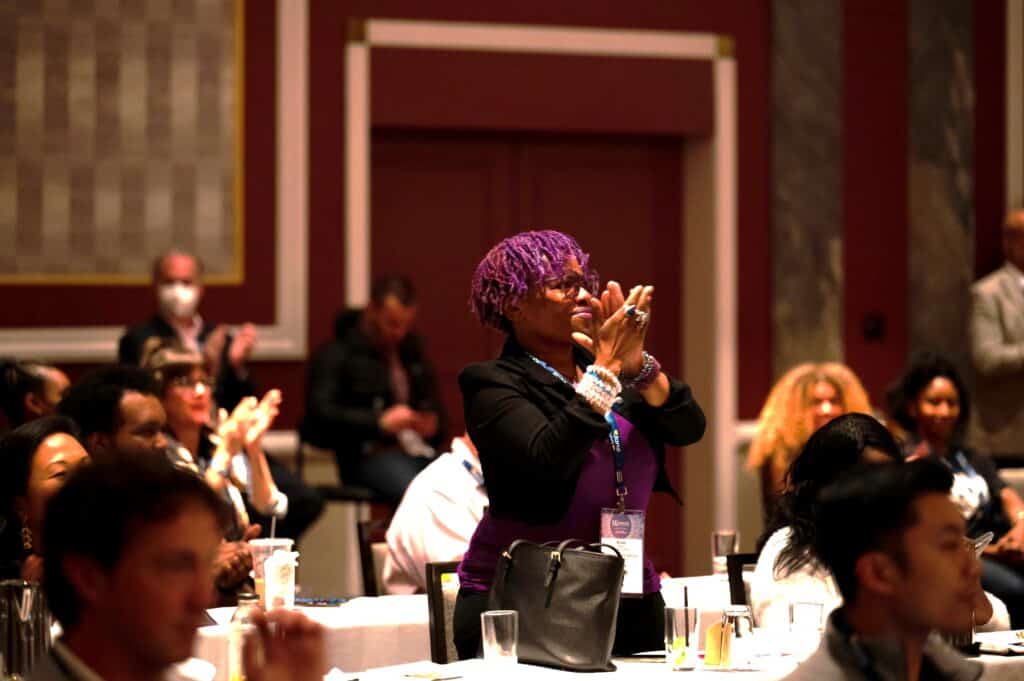The first real day at MJ Unpacked started auspiciously when we found ourselves breakfasting in the Executive Lounge next to cannabis legends Christine de La Rosa and Melanie Davis, who said she was looking forward to pitches on the Money Stage. After we mainlined our coffee, we headed to the Hilton’s third floor, where executives and investors clutching coffee and swag bags streamed toward the keynote address, “It isn’t Magic, it is Data—Successfully Expand Your Cannabis Business,” which was held in an elegant old-fashioned theater sparkling with chandeliers. MJ Unpacked co-founders Kim and George Jage took the stage first to welcome everyone to the two-day event and introduce BDSA co-founder Roy Bingham looking dapper and very English in a purple checked coat.
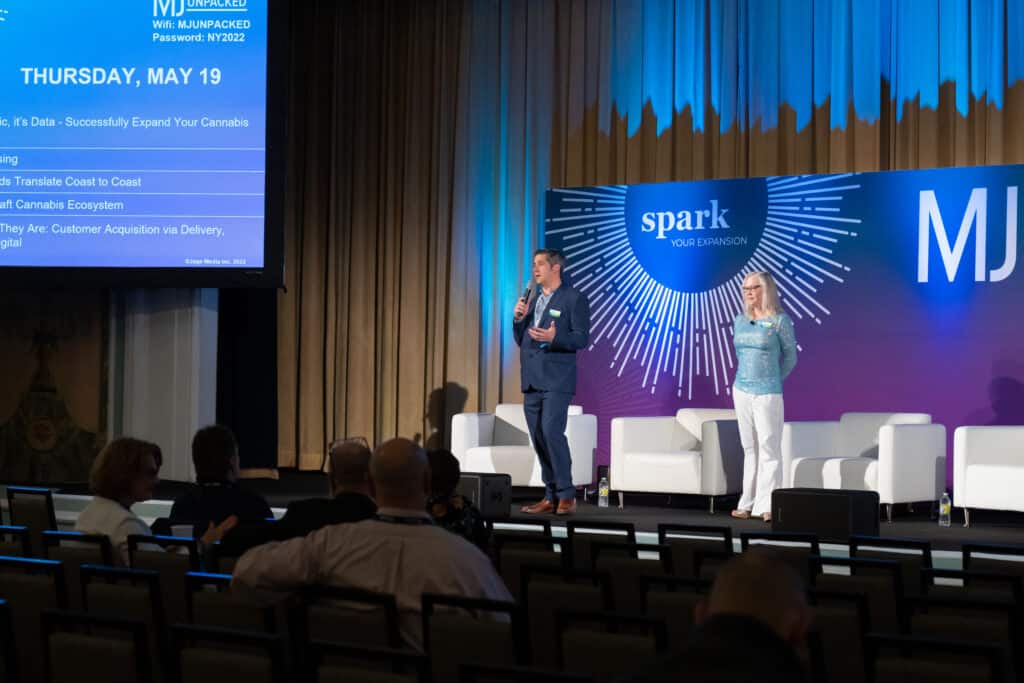

“I’m a bit of a nerd,” he admitted before launching into a granular presentation on the state and future of US cannabis markets, including projections for the nascent New York and New Jersey markets, a breakdown of the top-selling brands in the regions that BDSA tracks, and a look at changing consumer preferences, as well as their latest industry predictions. The presentation was notable for being both a comprehensive industry overview for relative newcomers and a deep data dive for fellow nerds.
Meanwhile in the nearby Brand Experience Hall, there was a flurry of activity. Queen Mary’s kiosk was lit with green fairy lights, which accentuated a prominently featured Emerald Cup award and a rotating display of her botanical THC tincture, which founder Tiana Woodruff said is currently her favorite product. Woodruff also shared excitement about her upcoming afternoon pitch session to investors on The Money Stage. Though initially nervous, she was just excited to give her pitch because, in her words, “I know what I know!”
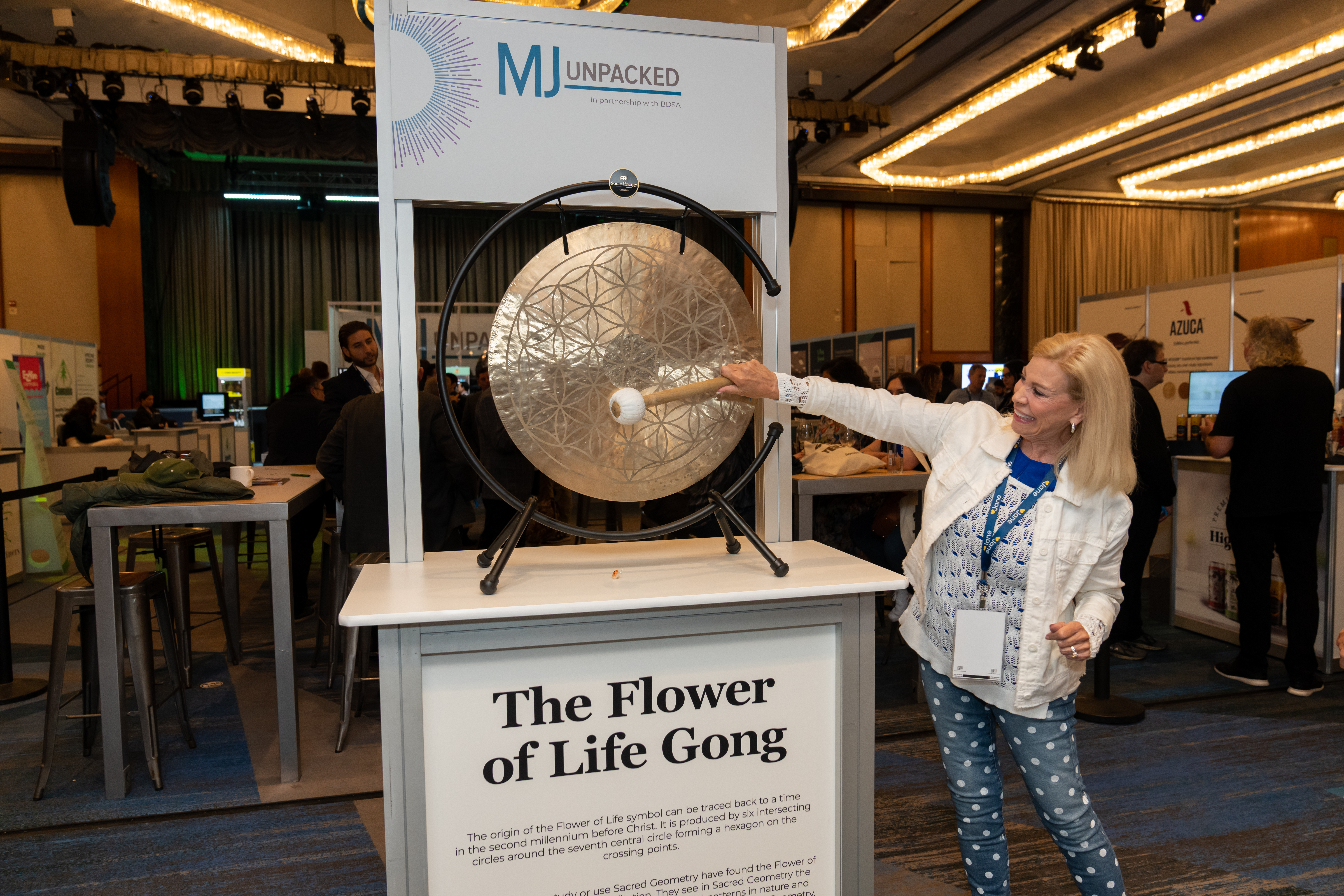

Other brands also brought their A-game to the exhibition floor. Flower by Edie Parker tempted attendees with their bright red candy apple pipes and one-hitter glass heart necklaces, not to mention their chic pastel rolling papers and one-of-a-kind matchbooks. Nearby, Bodega Boyz held court, turning the tables beside their kiosk into a lounge for like-minded industry people. A native New Yorker, founder and CEO Paras Chhabra was over the moon to be holding it down at an NYC conference. “I originally left New York because there wasn’t this opportunity,” he says, “so to be back at this event is an incredible feeling.”
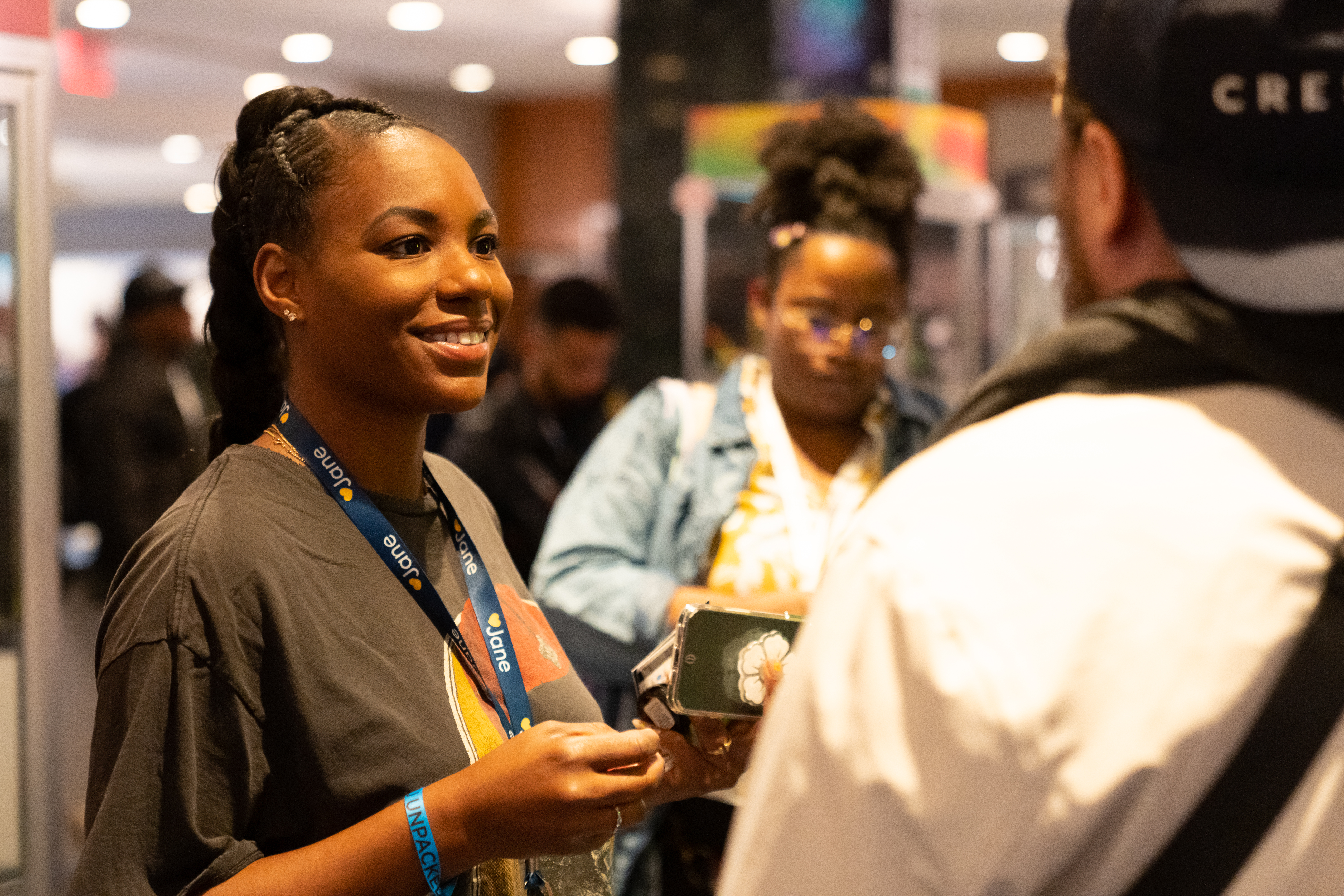
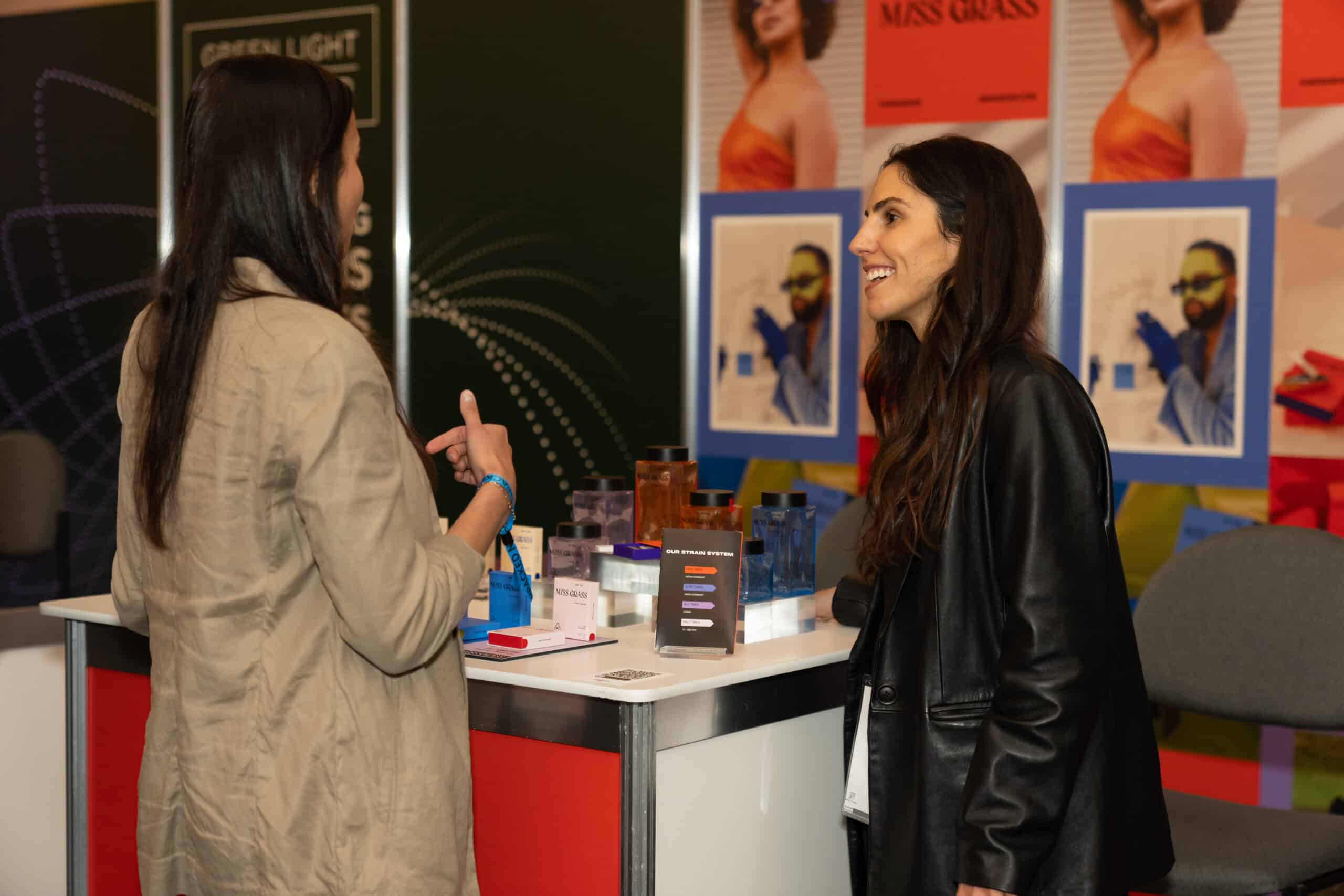
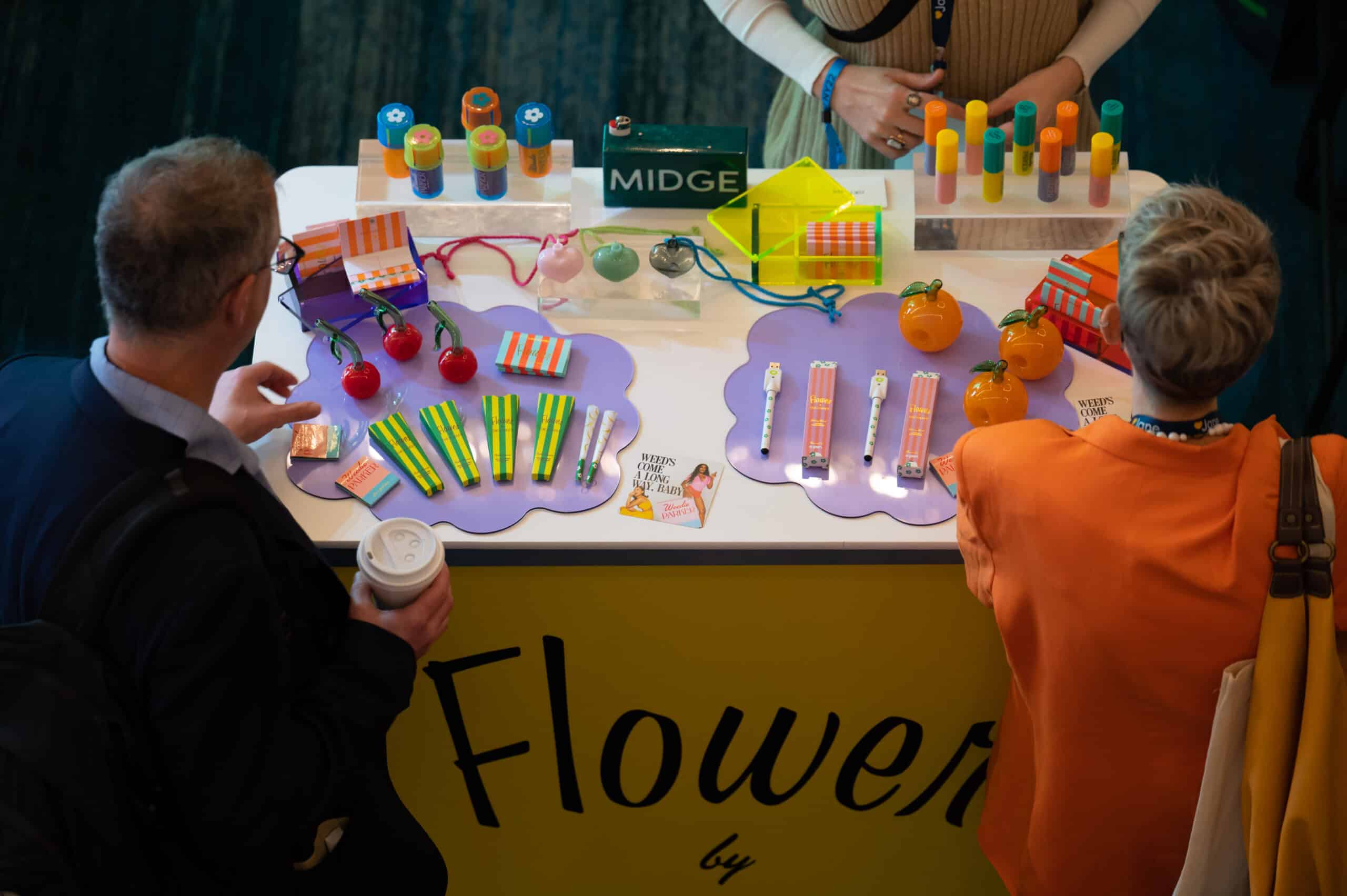
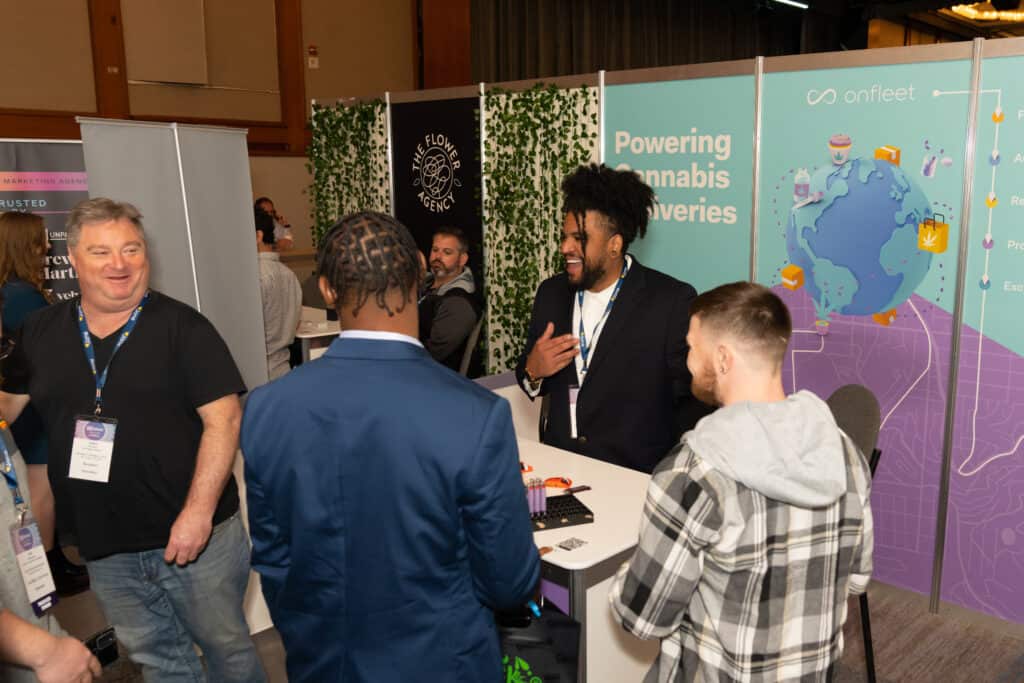
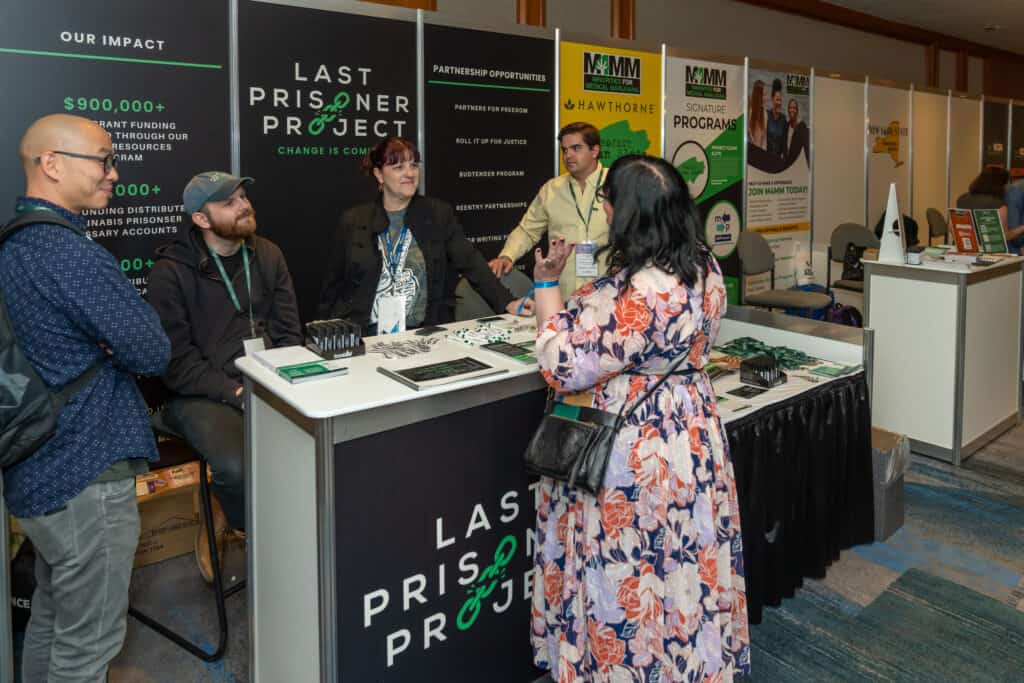

On the Main Stage, the presentations continued with “Building your Brand via Licensing,” moderated by Katrina Yolen, CMO of Acreage Holdings. Miss Grass co-founder Kate Miller talked about successfully establishing good partnerships by locating quality products, touring cultivation facilities and generally being very hands-on about the process. She also emphasized how crucial it is to work with good people with aligned values, which can take some scoping out. Toast CEO Punit Seth agreed, saying he values working with smaller operators. Rusty Wilenkin, co-founder of Old Pal, discussed connecting with customers on an authentic level and tailoring their strategies according to their feedback. He also highlighted the importance of working with people he genuinely trusts and feels good about—the first step in protecting intellectual property. The presentation went a little over time because the topic generated a lot of interest and follow-up questions.


Another Mainstage highlight was “Building and Protecting the Craft Cannabis Ecosystem,” moderated by Vince Ning of NABIS. Jesce Horton, CEO of Oregon’s LOWD, had the crowd cracking up with his story about why he started growing (“as I mentioned, I’m a stoner”) and his description of the typical craft cannabis consumer (someone who prioritizes quality weed supply just below paying the rent). But he then went on to offer more serious analysis of the ongoing need for consumer education.
According to Darnell Smith, founder of MXXN, a cannabis beverage company known for going beyond the “cannabis bubble” and into spaces like the mixologist community, that mission goes both ways. During the panel “Meet your Customers Where They Are,” he emphasized the need for us, as an industry, to educate ourselves on consumer needs. “Nothing can replace being able to speak to your customers and understand their feedback,” he said. “Talking at consumers no longer works—it has to become a two-way conversation.”
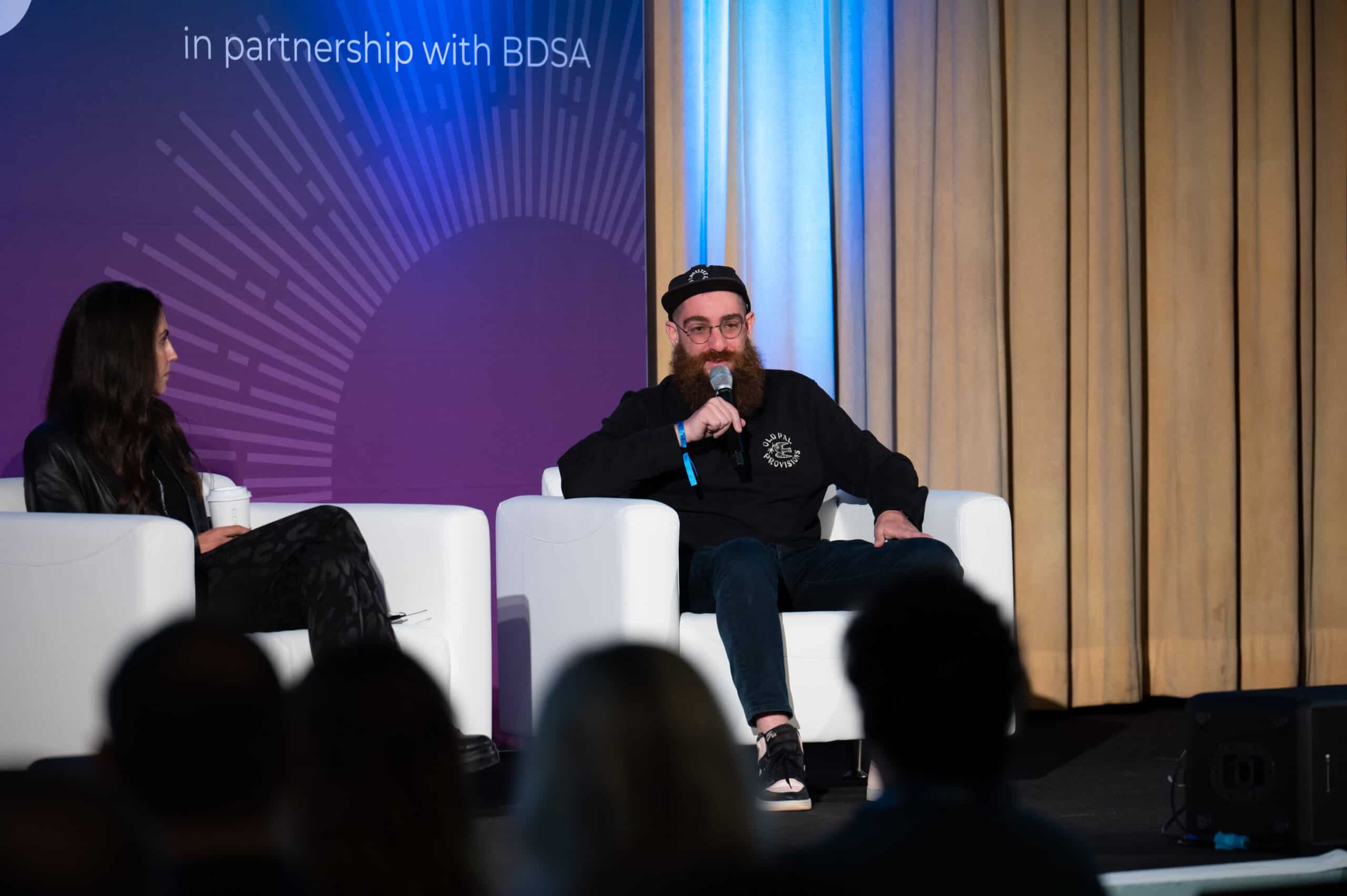

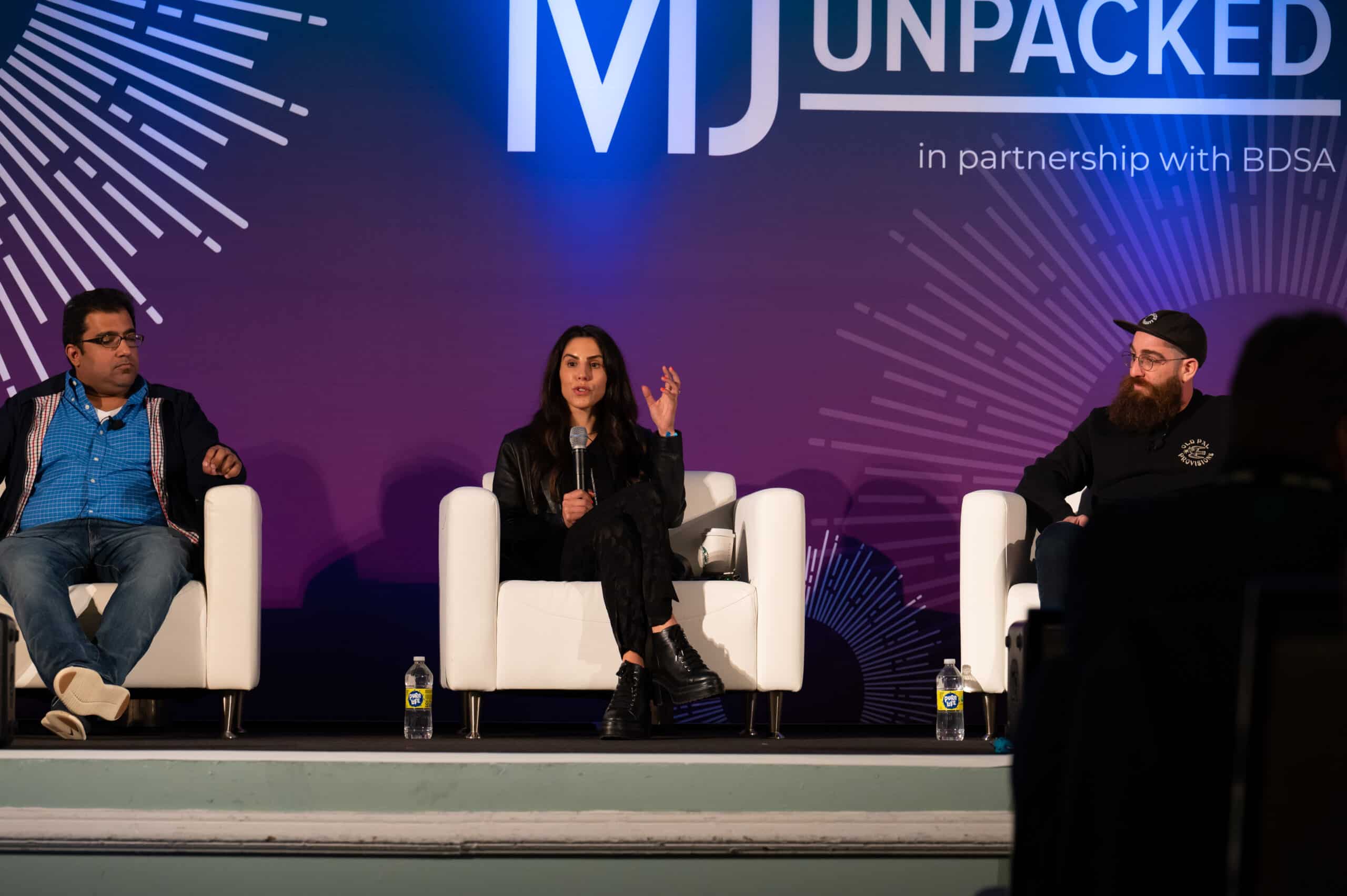
For craft cannabis producers, sensitivity to consumer needs is part of what makes their corner of the market so unique, an advantage that will prove critical as bigger players move in. Much of the conversation revolved around how to leverage quality as an advantage that craft cannabis producers have over mass producers.
“Consumers deserve quality and quality is craft cannabis,” said Lindsey Renner, owner of Native Humboldt. MD Numbers co-founder Marie Montmarquet agreed. “Genetics are always going to lead the way and innovation comes from people who have been in the industry. Being a stoner is key,” she said, eliciting more laughter from the audience. Despite the panel’s strong emphasis that craft cannabis is the dank, Renner did talk about the potential benefit of partnering with an MSO with shared values. And when asked how legal craft cannabis can compete with the illicit market Montmarquet leaned into inclusivity. “Lower the taxes, lower the licensing fees. Bring in all markets together so we can thrive,” she said.
Speaking of lowering barriers of entry, The Money Stage allowed select brands to present their pitches to an audience of accredited investors. The warm, subdued lighting in the art deco-styled theater created a comfortable vibe as Kimberly Dillon, former CMO of Papa & Barkley and founder of Frigg, took the stage in a chic sequined jacket to introduce the brand pitches from Our Academy, a social equity incubator. Dilllon, who is a mentor at Our Academy, spoke of the problems created when predatory operators take advantage of social equity licensensees.
“MSOs need to work with social equity brands and founders, but we also don’t want people to be tokenized or taken advantage of,” Dillon said. She then outlined the work Our Academy is doing to prevent that and how investors with integrity can participate. Her introductory presentation was followed by Our Academy mentee Tess Taylor of Dose of Saucy, who shared how her brand story is entwined with the veterans in her family and made a convincing pitch for her line of THC-infused barbecue sauces and dressings.
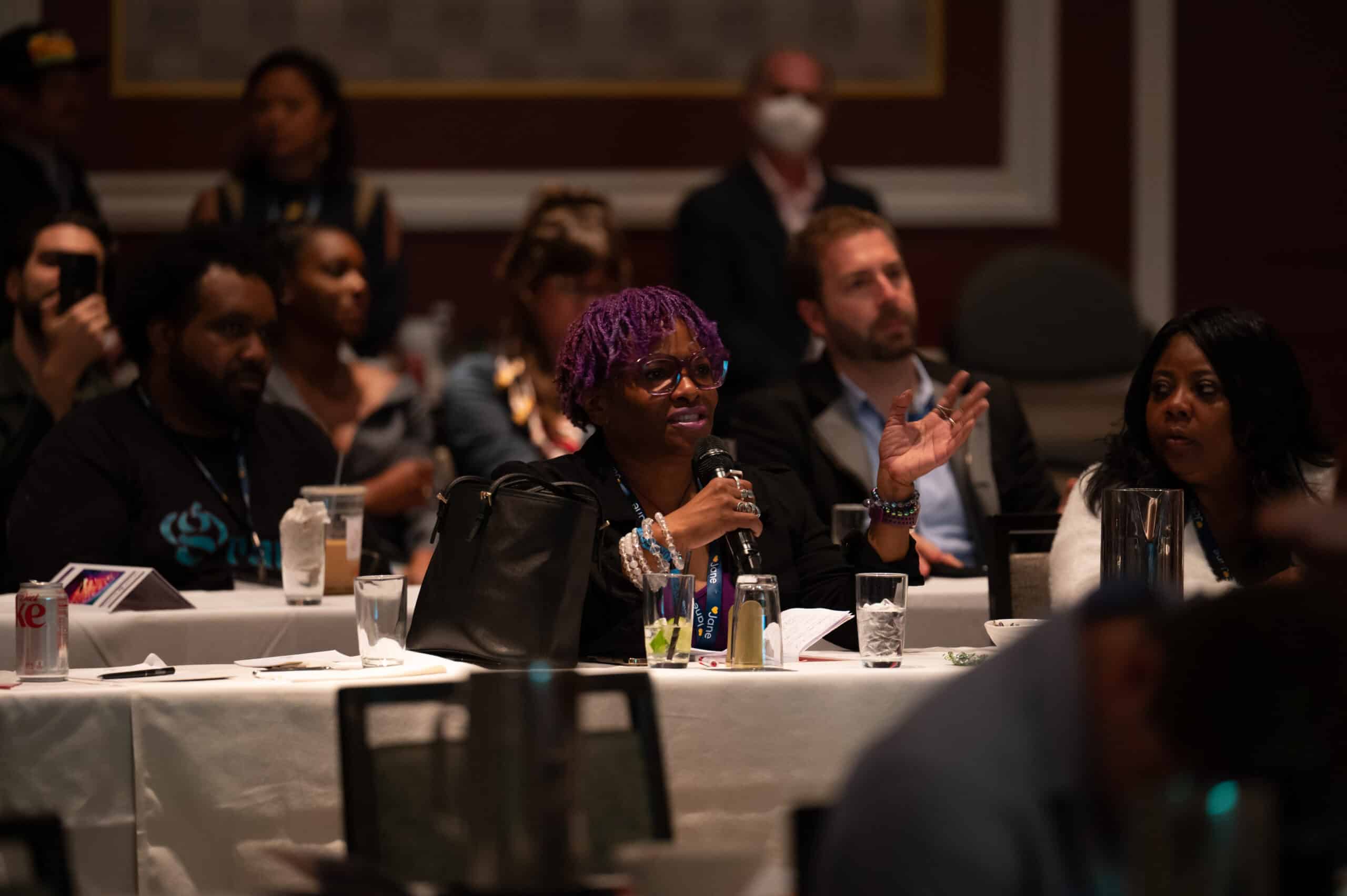
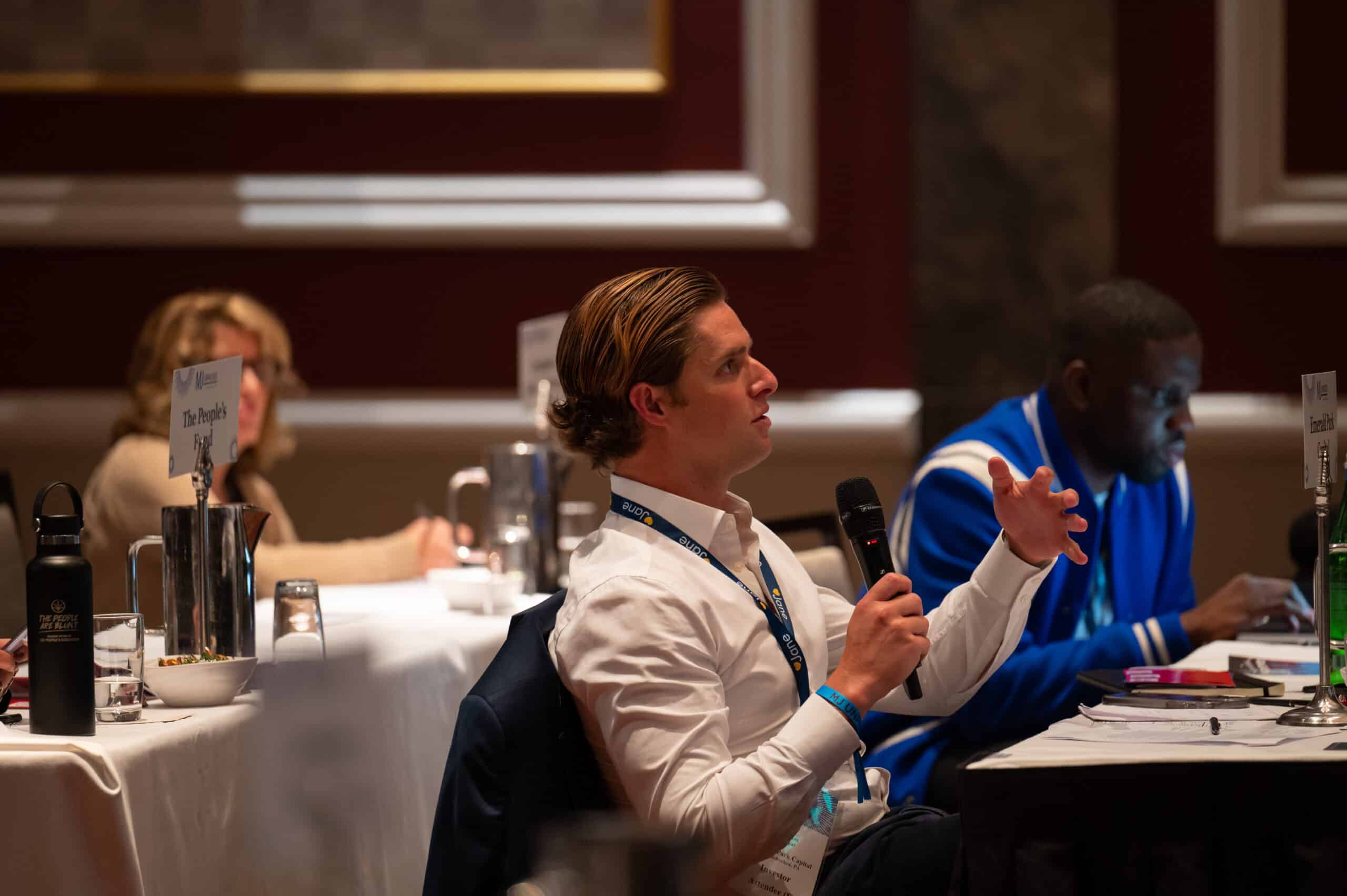
As Morris Kelly of SF Roots took The Money Stage, boisterous applause indicated that he had already won over the crowd, giving the impression that his presentation was more of a victory lap than an appeal. “We’ve been able to grind, put in blood sweat and tears, and face obstacles that would knock out anybody else,” he declared to the investors. “We’re still here, and we’re still going to be here. We’re poised to take the next step.”
Kelly may have been a tough act to follow, but Hope Wiseman, co-founder of Mary and Main, had no trouble keeping the crowd. She presented the investors with an ambitious but coherent vision of spearheading a Black woman-led MSO with a robust portfolio of BIPOC brands to target markets with favorable social equity conditions and low-brand saturation, to noticeable enthusiasm. “50% of cannabis users are Gen Z and Millenials, and they care as much about the ethics of their products as quality,” she pointed out. “We understand how to focus on developing portfolio licenses to create products for these generations.”
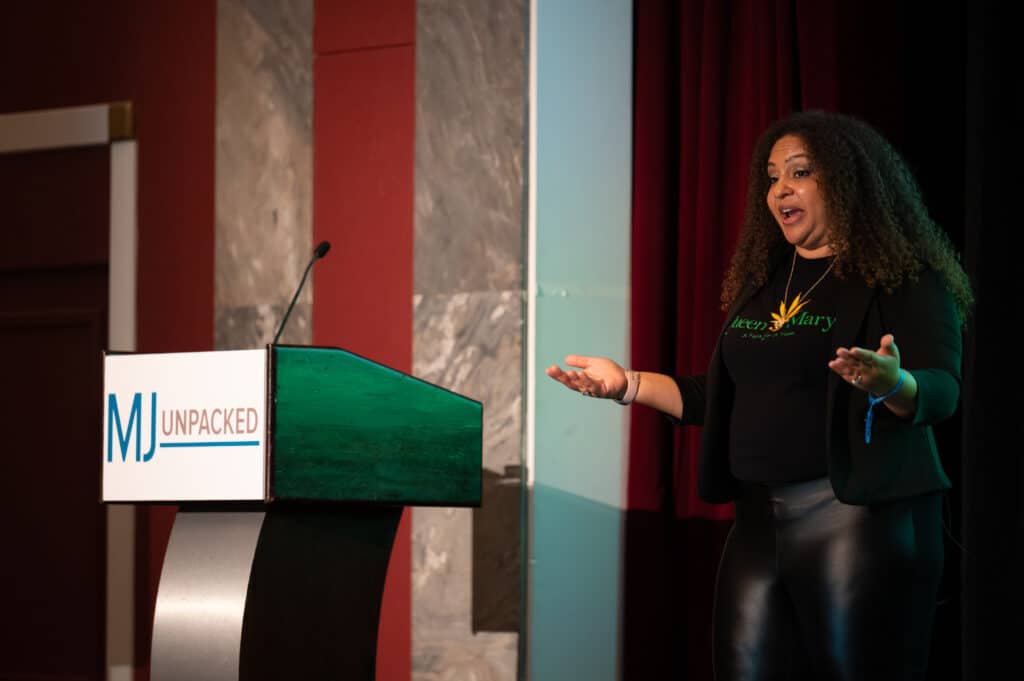

One of the hot topics of the conference thus has been the emergence of the East Coast market, a question that took center stage at the panel, “How do CPG and Retail Brands Translate Coast to Coast?” Panelist Chris Abbott, founder and CEO of Seattle’s Botanica, has found it challenging to create consistent products from state to state given the range of compliance guidelines. “We’ve gone out of our way to make it simple—everything is oriented to keep the product as consistent as you possibly can,” he said. “That said, it’s still really hard because each state has different compliance. I often say that cannabis packaging is mostly about stickering. I’m a big fan of stickering.” Panelist Kim Rael of Azuca also emphasized the need to keep things as streamlined as possible when moving into new markets. She boils down her multi-state philosophy to, “nail it and scale it.”
Speaking of nailing it, we got a lot of positive feedback about the event. Angela Brown, co-founder of Coast Cannabis Co. in Massachusetts was enthusiastic about the caliber of the audience and her experience today overall. “This was good! We’re planning on Vegas!” she said.


